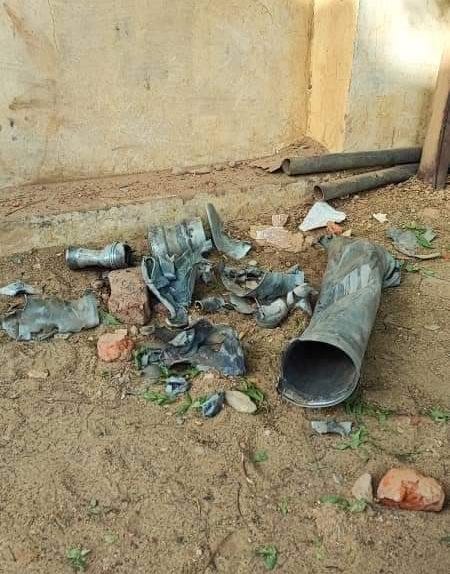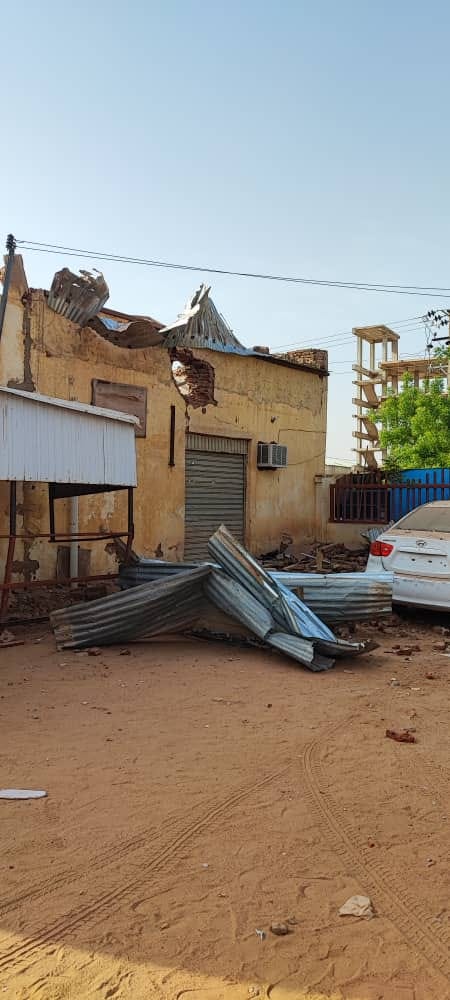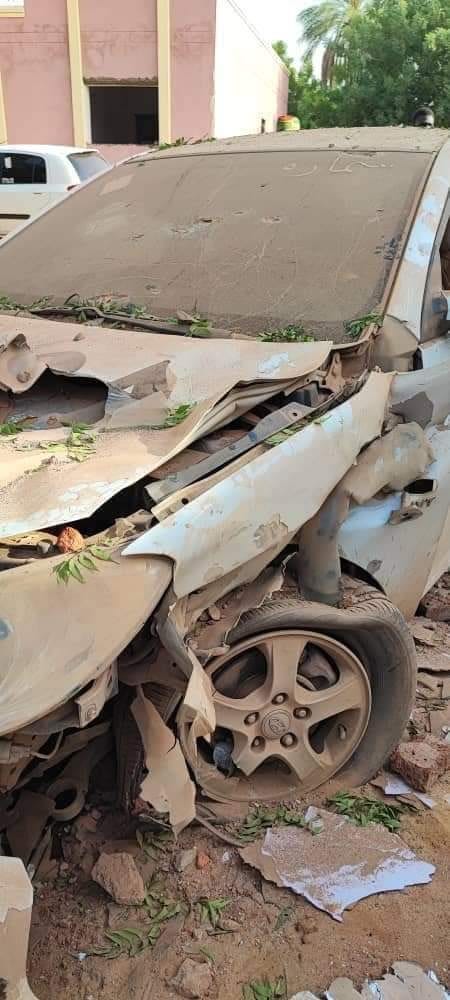RSF shell two hospitals in Sudan amid medical disaster
Plus: Massive fires destroy Khartoum energy infrastructure
Contents of this newsletter:
Medical disaster in El Fasher
El Fasher escapees get little help
Massive fire at the Jaili refinery
Heavy damage at the Khartoum North power plant
POWs massacred in Al-Fula
Brigade commander killed in West Kordofan
Other news in brief

Shelling by the Rapid Support Forces damaged two hospitals in Sudan over the past week, including the Saudi Maternity Hospital in El Fasher, capital of North Darfur, and Al-Nau Hospital in Omdurman, Sudan’s largest city and twin city of the capital.
A pharmacist working the night shift, Amna Ahmed Bakhit, was killed in El Fasher, and three people were killed in Omdurman.
Both hospitals were run by Sudanese state health workers and supported by Doctors Without Borders (MSF), the international humanitarian organization. MSF yesterday wrote in a statement,
“On the night of Friday 21 June, RSF shelling hit the pharmacy of the MSF-supported Saudi hospital in El Fasher. A pharmacist was killed while on her shift, and the pharmacy building was damaged. Although the hospital remains open and is still treating patients today, it has been damaged and is only partially functional. More supplies are urgently needed to continue to treat the wounded, and a further attack is feared due to the continued fighting close by: yesterday one person was killed just 200 metres away from the hospital and a third person was killed close to MSF’s staff accommodation.”
Patients at the hospital are lying on the floors amid a severe shortage of a supplies and staff, according to witnesses cited by Radio Dabanga. Gauze and oxygen tubes are particularly lacking. The hospital has only one orthopedic specialist, despite most severe cases arriving at the hospital needing this type of care.
Images from the hospital, circulated among Sudanese on social media, show the remnants of a 122 mm Grad rocket.




Michel-Olivier Lacharité, head of MSF’s emergency operations, said, “In El Fasher we are seeing a cycle of offensives and counterattacks where hospitals are not being spared and the warring parties are failing in their responsibilities to protect civilians.”
“This is the second time Saudi hospital has been impacted since the fighting began, and the eighth time a hospital has been hit in the city over the past six weeks. Two weeks ago, the Ministry of Health was forced to close South Hospital after it was attacked a fifth time. Prior to that, the paediatric hospital was forced to close due to damage caused by an SAF airstrike. As a result of these incidents, Saudi hospital—which was previously a specialist maternity hospital—has become the only health facility in the city with surgical capacity and the ability to treat the wounded. Now, its ability to keep its doors open is also in jeopardy.”
These attacks come in spite of a demand by the UN Security Council that the RSF halt their attack on El Fasher and allow the unhindered passage of humanitarian supplies.
RSF also shelled the Al-Nau Hospital in Omdurman on Wednesday, June 19, amid heavy shelling in the city. According to MSF, three people were killed, including a local hospital volunteer, and 27 injured were admitted to the emergency room.
This is the second time that the RSF have attacked the hospital. In October, RSF shells killing two patient caretakers at Al-Nau, and injured five people. MSF noted,
“Al Nao Hospital is the largest functioning public hospital remaining in Omdurman equipped to handle influxes of war-wounded patients. Each day, it receives a high number of emergency medical cases and war-wounded.
“The medical team in Al Nao hospital responded to two mass casualty incidents in one week between May 31 and June 6. The latest one was overwhelming with 65 wounded arriving at the same time, 10 of which died.”
RSF have also shelled hospitals in Jebel Aulia and El Obeid, and their soldiers have attacked and harassed hospital workers in areas under their control.
The RSF are a paramilitary formed under the dictatorship of Omar al-Bashir, originally comprised of Arab tribal militias from Darfur, called ‘janjaweed’ (devils on horseback) by their detractors. The RSF supported Islamist army leaders when they launched a coup in 2021, usurping a brief period of secular civilian rule and resulting in the formation of an unstable military junta.
Divisions within the junta broke down in early 2023 and the RSF turned on the Sudan Armed Forces, marking the start of the current civil war.
Escaping El Fasher and finding little help
Civilians in El Fasher must choose between enduring the risk of shelling or cross-fire or trying to escape to a safer area. They have few options where to go because the roads toward the army-controlled areas in central Sudan are too dangerous, and routes to Chad or Libya are likewise long and perilous. RSF are active along all routes.
Some have fled toward a mountainous enclave in the central part of Darfur controlled by a neutral armed group, the Sudan Liberation Movement/Army led by Abdel Wahid al-Nur. Health facilities in this territory are struggling to cope with the influx of new arrivals. Ayin Network has a video report (in Arabic) about the situation in Tawila:
Huge fire at Jaili Refinery
A massive fire has burned continuously for five days at the Jaili Refinery in northern Khartoum State, which is located at the nexus of two pipelines that originate in South Sudan and meet here before snaking northeast to the Red Sea Coast.
The sprawling refinery complex has suffered fires of various sizes since last year. This latest one reportedly destroyed a tank that stores crude oil from Heglig, a major oilfield at the border with South Sudan. Although we cannot independently verify this, if true it would be another economic setback for South Sudan, which already suffered a rupture of its eastern pipeline that runs along the Nile toward this refinery.
The China National Petroleum Company, which operates the Jaili refinery, is still employing Sudanese workers at the site to maintain it and prevent damage, even though it is no longer operating. Some of these workers are seen in the video below attempting to battle the raging fire. The refinery is close to the frontline and difficulty to resupply. RSF control the refinery but SAF can reach it with drones and warplanes.

